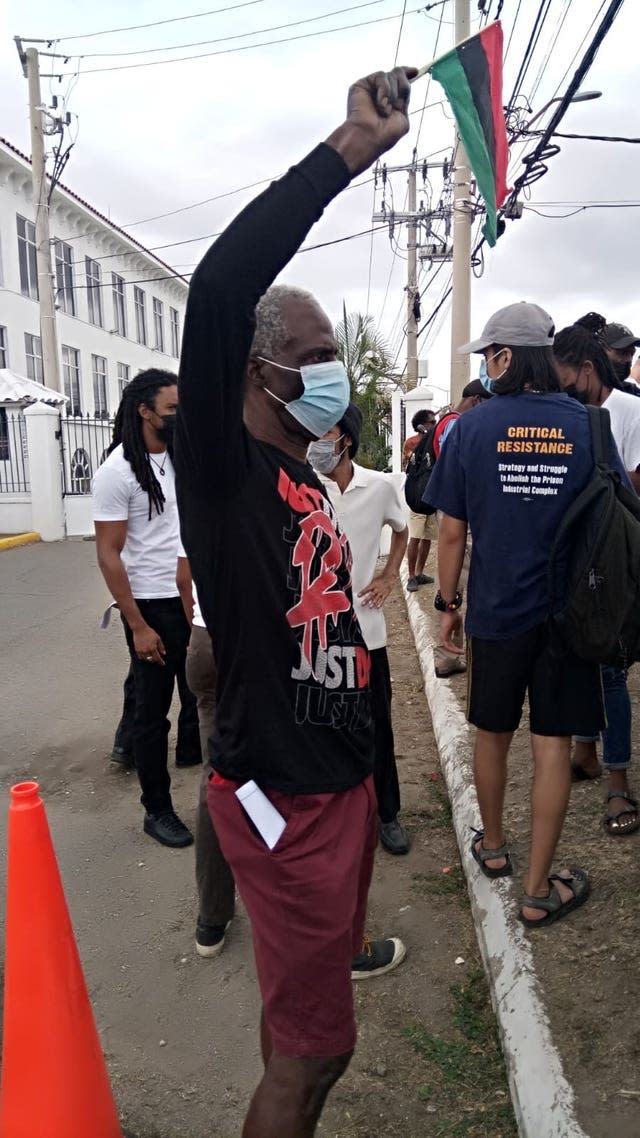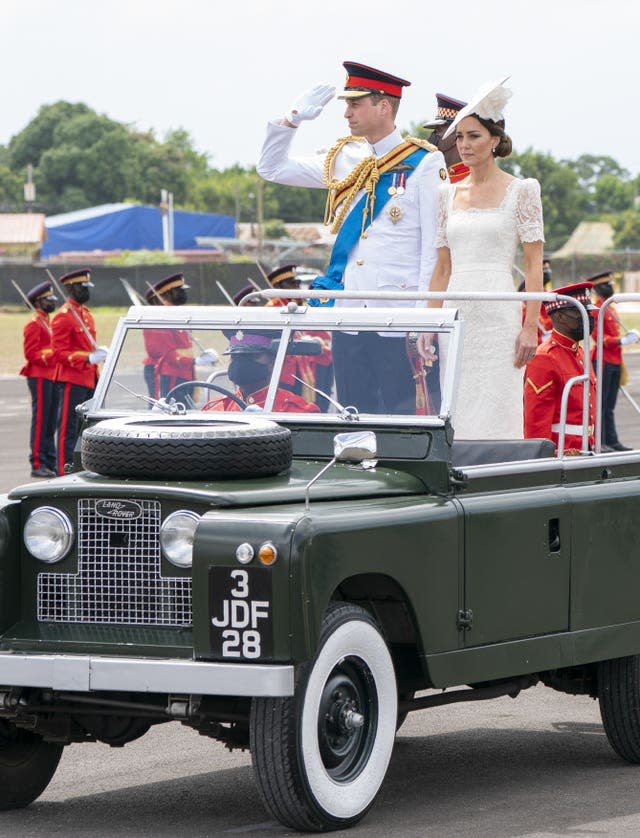[ad_1]
A slavery reparations campaigner has branded the Earl and Countess of Wessex’s “British oligarchs” and said he was “disappointed” their go to to Grenada was cancelled.
Edward and Sophie postponed their trip to Grenada – meant to be section of a 7-day tour of the Caribbean to mark the Queen’s 70-year reign.
The pair on Saturday acquired a crimson carpet welcome as they landed in in St Vincent and the Grenadines but, inspite of the pomp and ceremony, the royal tour has been achieved with renewed calls for reparations for the slave trade and Britain’s colonial earlier.

Arley Gill, chairman of the Grenada’s National Reparations Committee – which is calling for a official apology for slavery and extensive-ranging reparations, claimed he and other individuals asked for an viewers with the royal few by way of the Governor-General but was “disappointed” the Grenada part of their tour was cancelled.
Campaigners experienced hoped to deliver a strategy for reparations and explore the topic confront to face, despite the fact that a conference was by no means set up.
“We, of the National Reparations Committee, on studying that we had these British oligarchs take a look at Grenada, wrote to the Governor-Common, the Queen’s agent below in Grenada to have an viewers with the Earl and Countess of Wessex to focus on the subject matter of reparations”, he mentioned.
“So in a way we are a little bit unhappy that they are not coming so we’re not able to have that conversation with them.”

Mr Gill said he and others experienced also prepared to stage protests to attract consideration to the situation of reparations and reported he stands by responses produced to The Times that they would have produced the visit “rather uncomfortable”.
“As you will have observed in the go to of Prince William and Kate Middleton in Jamaica, I really do not feel that they were being comfy at all, I never consider that the British monarchy is relaxed with the issue of reparations to commence with since therefore much they have failed to apologise to us, to black individuals, to African descendants, for the role that they performed in the Atlantic slave trade and slavery,” he added.
The negative response to the royal visit arrives soon after the Duke and Duchess of Cambridge encountered protests demanding reparations for the duration of their tour of the region in March.
The couple were also accused of being “tone deaf” after they have been found shaking palms with crowds at the rear of a wire mesh fence in Kingston, Jamaica, and photos of the pair driving in the back again of a Land Rover had been denounced as harking again to colonial days.
William expressed “profound sorrow” at the forced transportation of hundreds of thousands of folks from Africa to the Caribbean and North The united states and echoed the text of his father, the Prince of Wales, as he explained the slave trade as an “appalling atrocity” that “stains our history” in a speech for the duration of the go to.

But the rhetoric has been blasted as “phony sanctimony” by campaigners who questioned the “mantra” not to be recurring in an open letter to the earl and countess.
It comes amid a escalating anti-colonial sentiment across the Caribbean.
Barbados changed the Queen as head of point out in November and Jamaica’s key minister Andrew Holness has also suggested his region may well be the subsequent to develop into a republic.
The Duke of Cambridge also earlier acknowledged the monarchy’s times in the Caribbean may well be numbered as he mentioned the future “is for the individuals to determine upon”.
The British royal spouse and children ended up involved in the transportation and selling of individuals for earnings for generations with Elizabeth I getting to be concerned in the lucrative dealings of John Hawkins, 1 of Britain’s to start with slave traders in the 16th century.
When his very first experience proved thriving and his ships returned laden with goods, she supported his potential expeditions by delivering vessels to have the human cargo.
The connections in between the royal spouse and children and slavery continued with Charles II, who encouraged the growth of the slave trade.
He granted a constitution to a group of adult men, the Royal Adventurers, who later on turned the Royal African Company – and the monarch and the Duke of York invested their non-public cash in the venture.
[ad_2]
Source connection





More Stories
How To Choose The Right Formula Drifting Tires For Your Vehicle
GPS Vehicle Tracking – Five Top ROI Benefits
Electric Car Conversion Kit – Turn Your Gasoline Powered Vehicle Into an Electric Transporter